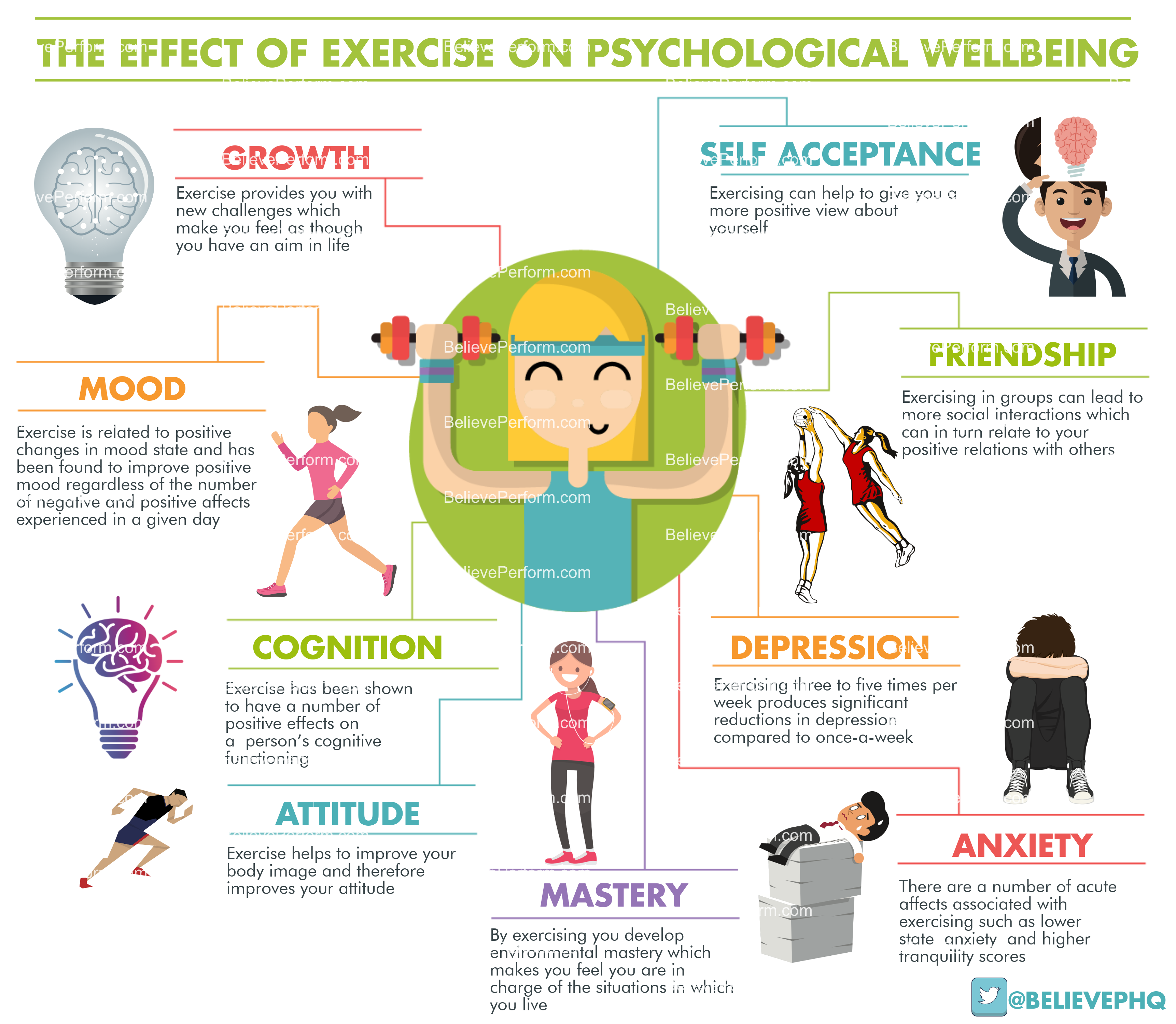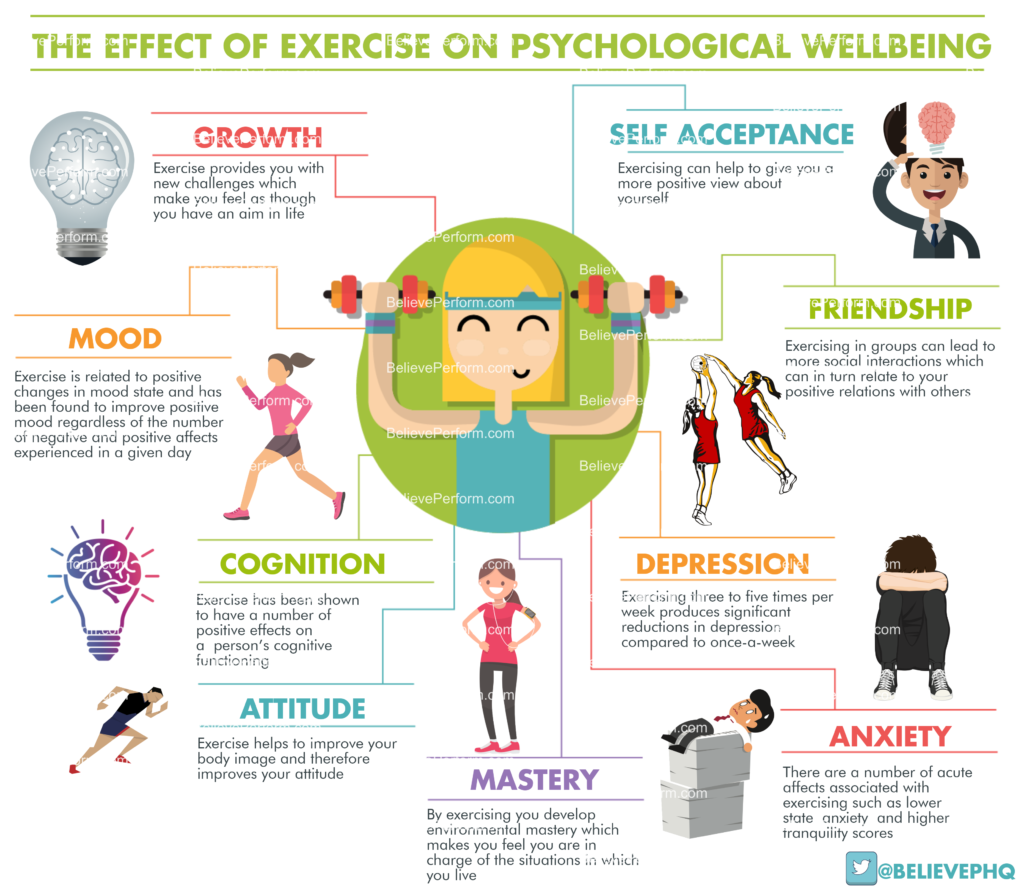Often cited as helping to stabilise mood, encourage sleep and improving cognitive function, exercise can have profound and deep effects on how we feel and connect with ourselves and the outside world.
In this mental fitness infographic the BelievePerform team analyse the effect of exercise on psychological wellbeing.
Categories: Mental Health Physical Health Sign Up
This product is a digital download. Available to download for free with a membership.

 " />
" />
Growth – Exercise provides you with new challenges which make you feel as though you have an aim in life.
Self – acceptance – Exercising can help to give you a more positive view about yourself.
Friendship – Exercising in groups can lead to more social interactions which can in turn relate to your positive relations with others.
Depression – Exercising three to five times per week produces significant reductions in depression compared to once-a-week.
Anxiety – There are a number of acute effects associated with exercising such as lower state anxiety and higher tranquillity scores.
Mastery – By exercising you develop environmental mastery which makes you feel you are in which you live.
Attitude – Exercise helps to improve your body image and therefore improves your attitude.
Cognition – Exercise has been shown to have a number of positive effects on a person’s cognitive functioning.
Mood – Exercise is related to positive changes in mood state and has been found to improve positive mood regardless of the number of negative and positive effects experienced in a given day.